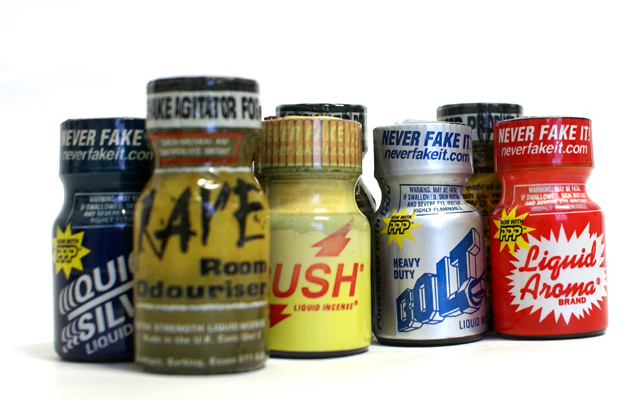It appears that the much-feared aromas ban – due to come into force in April – may not be happening after all, if the government complies with its official drug advisers’ recommendations. The Advisory Council on the Misuse of Drugs (ACMD) – an independent expert body that advises government on drug-related issues in the UK – was asked by the Home Office to provide its assessment on the harms and psychoactivity of alkyl nitrites with regard to the Psychoactive Substances Act, and whether aromas (aka poppers) should be exempted from the legislation.
The ACMD has now written to the Home Office with its conclusions. The report, written by Professor Les Iversen, chair of the ACMD, and dated 16th March 2016, states: “The ACMD considered three possible options when discussing the question of whether alkyl nitrites fell within the scope of this definition: that ‘poppers’ are caught under the definition of a ‘psychoactive substance’ and should be controlled under the Psychoactive Substances Act 2016; that ‘poppers’ are psychoactive, but should be on the list of exemptions from the Psychoactive Substances Act 2016; or ‘poppers’ are not caught by the definition of a ‘psychoactive substance’, and the Psychoactive Substances Act 2016 therefore does not apply.”
The ACMD’s consensus view is that a psychoactive substance has a direct action on the brain and that substances having peripheral effects, such as those caused by alkyl nitrites, do not directly stimulate or depress the central nervous system. Therefore: “In the ACMD’s view, alkyl nitrites (‘poppers’) do not fall within the scope of the current definition of a ‘psychoactive substance’ in the Psychoactive Substances Act 2016. Consequently, the ACMD does not see a need for an exemption under the Psychoactive Substances Act 2016.”
The ACMD also restated its 2011 assessment that misuse of the product, within the terms of section 1 of the Act, is not seen to be capable of having “harmful effects sufficient to constitute a social problem”.
The full report can be seen here. After the report was published, Karen Bradley, a Home Office minister, said: “We have noted the advice of the Advisory Council on the Misuse of Drugs and we intend to respond shortly.”
Under a separate initiative, the Medical and Health Regulatory Authority (MHRA) was asked to look into whether aromas should be exempted from the Psychoactive Substances Act. This report was expected to be completed after parliament’s summer recess. So even if the home secretary rejects her official drug advisers’ recommendations, the MHRA report could still lead to aromas being exempted from the ban.




![20 years of ETO: Harmony, Charing Cross Road, London [reprinted from issue 1, July 2003]](https://www.erotictradeonly.com/wp-content/uploads/2023/08/NEWS_20YEARS_HARMONY_ISSUE1-238x178.jpg)











